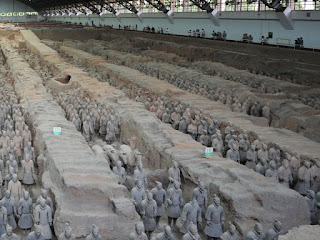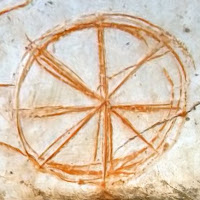I'll be honest with you - this is something that's been bugging me for a long, long time. Those of us who follow Jesus often refer to ourselves as 'Christians' or 'the Church', or in more specific cases we use the name of a particular organisation - 'I'm a member of the such-and-such church'.
 This troubles me because I really don't want to make any distinctions of this sort. We are all one in Christ, though we may have different gifts and abilities (Eph 4:1-7). We are one body and we should learn to see ourselves that way, not merely in terms of the Church Universal (although that is true and important) but in practical terms, in our daily lives and thinking.
This troubles me because I really don't want to make any distinctions of this sort. We are all one in Christ, though we may have different gifts and abilities (Eph 4:1-7). We are one body and we should learn to see ourselves that way, not merely in terms of the Church Universal (although that is true and important) but in practical terms, in our daily lives and thinking.The Bible recognises one church in different locations, it does not recognise different churches. Paul is emphatic on this point (1 Cor 1:12-14). The New Testament distinguishes church by province, city, and meeting place. We read of the church throughout Judea, Galilee and Samaria, the church in Ephesus, the church that meets at the house of Priscilla and Aquila. The idea of distinguishing churches on the basis of leaders, doctrines or traditions is completely alien to the writers of the New Testament. In fact they always opposed any such move very strongly.
I am entirely happy to be known simply as someone who follows Jesus and is part of the church in Europe, the UK, England, the East of England, Cambridgeshire, St Neots, or Eaton Ford. I'm happy to be regarded as part of the church meeting in my house, or Jim's house, or Sean's house.
But there is a practical issue when a name is needed in, for example, a list. What I would prefer is to state that I'm a follower of Yahshua (Jesus) in St Neots. And if there's room, that might be acceptable but it will be confusing. So in a list like 'Eynesbury Methodist, Open Door, River Church, St Mary's Eaton Socon' what should I write?
Currently I use terms like 'organic church', 'house church', or 'simple church'. But these are not accurate or complete and they act to divide - which is the very thing I want to avoid! I'd like to write 'the church in St Neots' but that will not be understood.
Suggestions are welcome. Does anyone else worry about these things?
There doesn't seem to be a satisfactory answer. I don't want to be seen as set apart, I want to be seen as I see myself, part of the one body of Christ here in the town where I live. But there doesn't seem to be a word or simple phrase for that!
Perhaps it's better to avoid being listed and just get on with living as a follower of the King. The very existence of a list implies that the items on it can be distinguished in some way.
Some new thoughts - It occurs to me that the early believers referred to their faith and practice as 'The Way'. The term 'Christian' means 'little Christs' and was applied by others in a derogatory sense.
Do you think it would be a good idea to talk about 'The Way' again? Or perhaps 'The Path', or 'The Road'. Or it could be expanded to 'The Narrow Way'. Should we refer to ourselves as followers of The Way?
How would that affect how we see ourselves? How would it affect how others see us? Think about the views of other believers and of non-believers.
How do you suggest we tackle this naming problem?






















